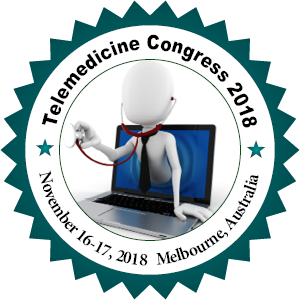
Monika Z. Rogozinska
ECRC, USA
Title: Can the Use of Novel Digital Devices Improve the Productivity of Drug Development?
Biography
Biography: Monika Z. Rogozinska
Abstract
Pharmaceutical companies have been forever challenged with both rising development costs and the need to find novel ways to differentiate the candidate drugs. Recent advances in digital health (DH) technology, including wearables, in-home clinical devices, and sensors, have enabled a growing array of available data endpoints, making these devices an invaluable tool in clinical programs. The broad scope of DH includes categories such as mobile health (mHealth), health information technology (IT), wearable devices and sensors, telehealth, telemedicine, and personalized medicine. Wearable devices can measure many physiological parameters and functions, including sleep, heart rate, gait, velocity, step count, blood pressure, body temperature, oxygen saturation, electrocardiogram (ECG), glucose, or even drug adherence. They are used mostly in chronic illnesses such as congestive heart failure, hypertension, diabetes, and chronic obstructive pulmonary disease (Figure 1). As a consequence, to this progress, surging drug development costs, and the need for speed, quality, and efficiency in drug development, pharmaceutical companies prompted the search for innovative technology and solutions. Advances in digital health devices and data could allow drug developers to carry out more detailed and real-time analysis of data from clinical trials. Real-time data in clinical trials brought the potential to increase the speed at which drugs progress through clinical trials, as well as accelerating go/no-go decision-making. Although digital health remains new, there is significant optimism over how a digital revolution could transform drug development, also among the regulators who actively guide and support the industry. On the other side, the discussion about the reliability of digital devices in clinical trials continues. Standardization of measurement and validation of wearable devices need a lot of work. Most software used in wearable devices has not been validated per the FDA’s standards, and doing such will add to the cost and time for developing such devices for use in specific medical settings, such as clinical trials. Device-to-device variability could lead to challenges with data analysis. Independently, we can expect to see the adoption of these digital technologies to increase as pharmaceutical companies begin to see their significant benefits.

